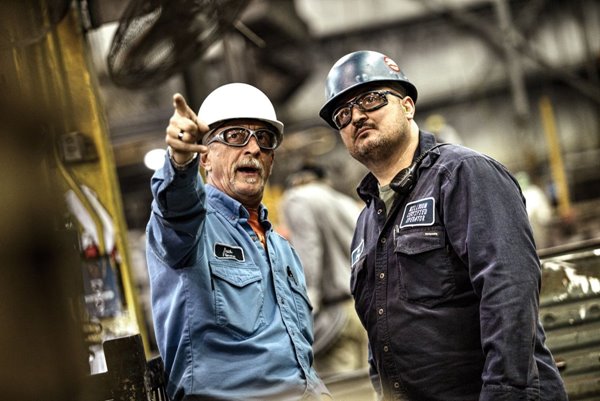The slow-chugging but long-running economic recovery could be extended beyond expectations based on recent history, a senior economist at one of the nation's largest banks told Oakland County business leaders this morning.
Typically, recoveries in the U.S. economy after a downturn last six to nine years, said Jim Glassman, head economist and managing director at JPMorgan Chase. But this one could extend a bit longer.
"It’s not about the clock," Glassman said. "It’s about getting to the ninth inning." And even then, this recovery is poised to go into extra innings, he said.
Despite political rhetoric blaming American economic shortcomings on jobs lost to foreign countries such as China and Mexico, that analysis doesn't "really resonate with the story I know," he said, adding that significant parts of the economy, especially the shared economy, do not always fully register in official statistics.
"Do we have to worry about a new downturn? No, not yet," Glassman said. He said other external factors like the dot-com bubble bursting in the early 2000s and the mortgage crisis eight years ago do not appear on the horizon today.
Other economists have said that it's unclear whether Donald Trump's presidency will pump up or tamp down the economic comeback.
Last week, Robert A. Dye, senior vice president and chief economist at Comerica Bank, told Ann Arbor business leaders that federal spending under Trump could accelerate with large outlays for infrastructure and defense.
Tax reform and some regulatory cuts could affect personal pocketbooks and corporate bottom lines, potentially for the better. But other measures, including a possible tax on goods imported to the U.S., in retaliation for foreign investments, could raise prices here and have the potential to tamp down economic growth.
Glassman said that despite slow growth in the overall gross domestic product, there are other indicators — relatively low levels of layoffs and strong auto sales, for example — that demonstrate that a relative solid economic recovery has taken hold. The more sluggish pace of recovery in the housing sector, he said, may reveal the opportunity in that sector for more growth ahead.
Overall, according to a University of Michigan economic forecast last month, national economic output growth will strengthen somewhat, to 2.3% in 2017 and 2.1% in 2018 amid unemployment below 5% through this year.
So why so much frustration about the economy, especially among voters?
Glassman blamed the aftershocks of disruptive innovation that has uprooted workers — especially those in the industrial sector — from higher-paying jobs and plopped them into positions with reduced wages.
"I don't know how much we can do about this," he said. "The broad economy is doing fine. The problem is there is a lot of change going on."
A big challenge ahead for the overall economy, he said, is trying to pay for promised benefits, especially health care, from a shrunken workforce. Boosting the rate of growth, he said, could help reduce the stresses on the economy caused by a looming bill for entitlement spending, including Social Security and Medicare.
Glassman also predicted that the industrial sector, which has a shortage of highly skilled labor, will even out, but the transformation could take another decade.
The shortage of nurses, he said, was once a hot-button issue. But then, more entered the profession and wages went up. Overall, he said, manufacturing may benefit as community colleges and local governments pitch in helping to train workers with skills needed on the factory floor today.
"It takes time to get people focused on it," he said of gaps in the workforce. "But that's where the opportunity is."

